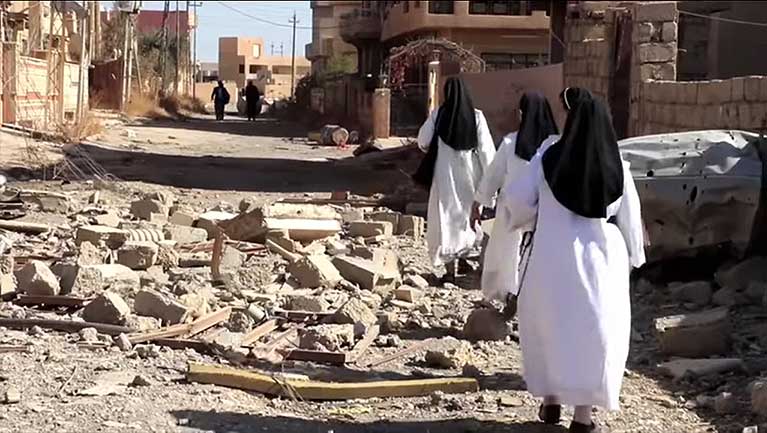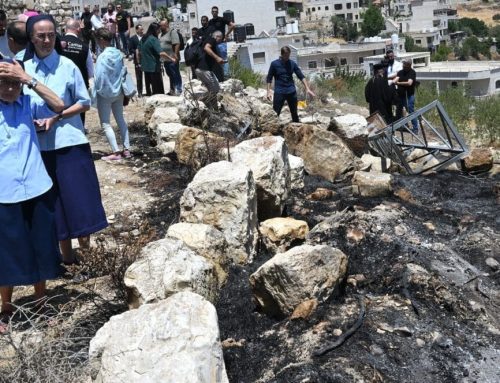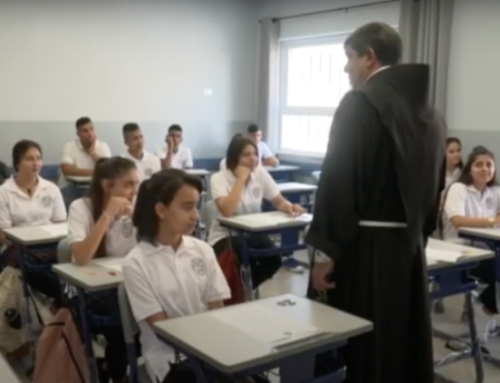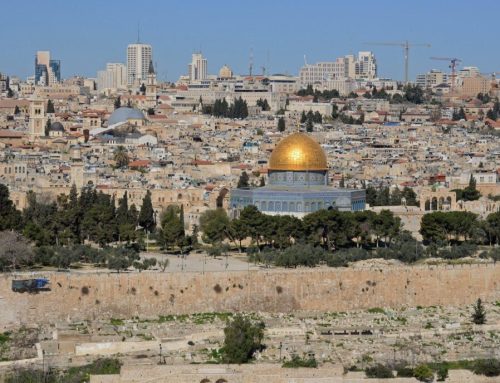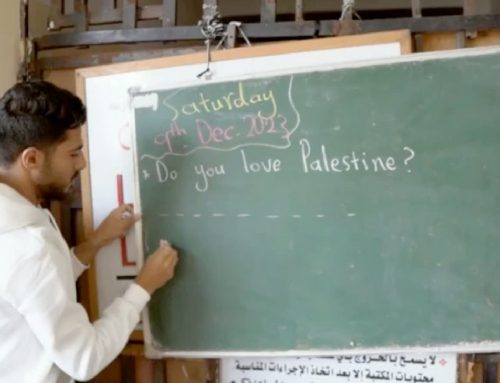– After three years in exile from Iraq’s Nineveh Plain while it was occupied by the Islamic State, the Dominican Sisters of St. Catherine of Siena are returning to their homeland to face the daunting challenge of rebuilding their destroyed communities.
“Three years ago, we left our homes at night to the unknown. We started a journey of displacement, exile and questioning,” stated an Aug. 6 open letter from the Dominican Sisters in Erbil.
“Despite everything, we always dreamed of going back and finding our houses safe and sound, just as we left them. We strongly wished that we would return and kindle our candles for prayers, harvest our grapes, and read our books,” the letter continued.
In 2014, the Nineveh Plain was overtaken by the Islamic State, forcing tens of thousands into exile and displacement. The Nineveh Plain territory lies between the city of Mosul, the country’s second-largest city, and Iraqi Kurdistan.
In the fall of 2016, two years after the Islamic State claimed the Nineveh territory, Iraqi forces made significant military gains and liberated the Nineveh Plain. Many scattered families were able to return to their towns with hope for the future.
“God showered us with His graces as our towns were liberated, one after the other; ISIS was defeated and the Plain of Nineveh seems to have been liberated,” the Dominican Sisters wrote.
While the territory is now seemingly safe from Islamic State forces, the Sisters said that it “does not mean that the Plain of Nineveh is entirely cleansed from that mentality.”
Upon returning to their homes, many found graffiti on the walls in their towns that read “we’re going to break your crosses,” and “you have no place with us.” Some churches were found to have battle instructions etched on the walls, with piles of deadly chemicals in the corners.
In addition, the physical damage left behind is overwhelming. Upwards of 6,000 homes are in need of repair or complete rebuilding just in the city of Bakhdida, also known as Qaraqosh. The families who still have standing houses are few and far between.
“We were so much stunned by the damage we saw. It was badly painful to see all that overwhelming destruction,” the sisters said.
“We immediately realized that it was not military forces or smart weapons that caused all the damage, but hate,” the sisters wrote, saying “hate leaves both oppressed and oppressor deeply winded.”
Some towns, such as Batnaya, were left 90 percent destroyed and the process of cleaning up has only begun. Another town, Bakhdida, was only 30 percent destroyed, but the NGOs who are helping with its repairs “are not enough compared to the destruction.”
Volunteers and locals hope to rebuild or repair as many homes as they can by September, which would be the beginning of the school year. However, the sisters noted that only the Church and some NGOs are actively involved in the long and expensive rebuilding process.
Many families have decided not to return to their communities due to the overwhelming loss of their homes. Others don’t return because they can no longer trust their neighbors. The sisters said that “we knew that it was our neighbors who betrayed us and did us harm, even before ISIS did.”
“It is not easy to decide whether to go back,” the Sisters continued, saying that their own convent in Bakhdida was also partially destroyed.
However, the sisters have decided to return to the Nineveh Plain, and they will be living in a family home in Telskuf until their convent has been repaired. The sisters also need to rebuild the orphanage which had been burnt down, and hope to start a kindergarten by the fall.
Although the aftermath of Islamic State’s occupation of the Nineveh Plain is significant, the sisters are hopeful for the future. Some families have been able to return to their homes, and the sisters are grateful that some of the rebuilding process that has already begun.
“Today, we see the marvelous work of God,” the sisters reflected.
“God is with us and will not leave us. We thank you for all the support you have shown us. Please pray for us as we start this new phase of our lives.”
Source: CNA

